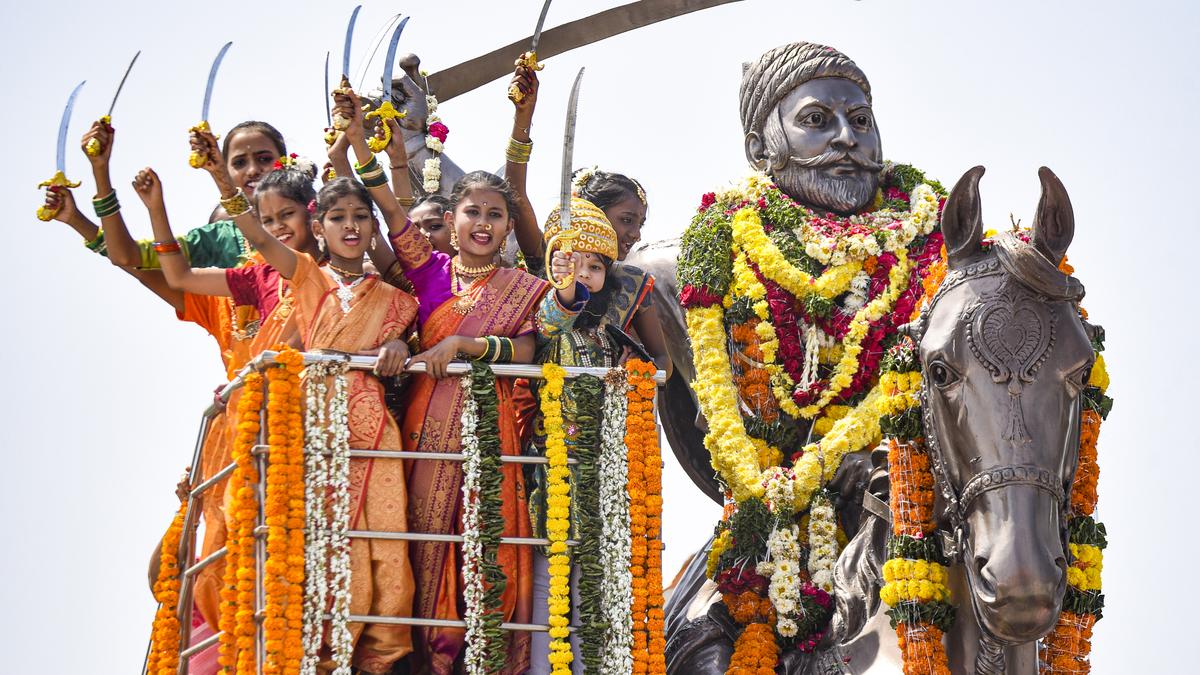
The Svarājya of Chhatrapati Shivaji: the wise king’s just rule Premium
The Hindu
Shivaji's inclusive and progressive approach to religion contrasts with Aurangzeb's, inspiring generations and shaping Indian history.
Shivaji was religious, and from all accounts seems to have been proud of being a Hindu. He awarded large gifts to temples as well as priests. However, his pride in his religion does not seem have been grounded in hatred for other religions. Even in those medieval times, his faith seems pragmatic, if not outrightly rational.
Khafi Khan’s Muntakhabu-l Lubab notes, “Shivaji had made a strict rule that wherever his soldiers went they were not to harm mosques, the Quran or women. If he found a volume of the Quran, he would show respect to it and hand it over to a Muslim servant. If any helpless Hindu or Muslim were found, Shivaji would personally look after them until their relatives came to take them.” Likewise, Shivaji’s chief justice, Raghunath Pandit Rao, in a letter of November 2, 1669, writes, “Shrimant Maharaj has ordained that everybody is free to follow his religion and nobody is allowed to disturb it.”
In contrast, Aurangzeb had imposed the ‘jizya’, a mandatory tax intended for non-Muslims living under Islamic rule, in 1679. As the contemporaneous fatwa declares, this amount was to be paid “regardless of whether they agree or disagree, consent to it or not”.
Shivaji’s response to this was bold and clear. Contending that Hinduism and Islam, while different from each other, are equal creations of God, he wrote in a letter to Aurangzeb: “They are different hues used by the true Divine Painter for blending the colours and filling in the outlines of His [God’s] picture of the entire human race.”
“If it be a mosque, the call to prayer is chanted in remembrance of Him. If it be a temple, the bell is rung in yearning for Him only. To show bigotry for any man’s own creed and practices is equivalent to altering the words of the Holy Book. To draw new lines on a picture is equivalent to finding fault with the painter,” he contended.
Reminding Aurangzeb of a ruler’s duty towards his subjects, Shivaji writes, “Your peasants are downtrodden; the yield of every village has declined, in the place of a lakh only a thousand, and in the place of a thousand only ten are collected.” He reminds the Mughal autocrat that under his rule “the army is in a ferment, the merchants complain, the Muslims cry, the Hindus are grilled, most men lack bread at night and in the day inflame their own cheeks by slapping them in anguish.”
Not one to back off from a righteous battle even when beseeching for fair play, Shivaji reminded Aurangzeb that many of the forts and provinces “have gone out of your possession, and the rest will soon do so too, because there will be no slackness on my part in ruining and devastating them”.

When reporters brought to her notice the claim by villagers that the late maharaja of Mysore Sri Jayachamaraja Wadiyar had gifted the land to them, Pramoda Devi Wadiyar said she is not aware of the matter, but sought to assure people that no effort will be made to take back the land that had been gifted by the late maharaja.





















 Run 3 Space | Play Space Running Game
Run 3 Space | Play Space Running Game Traffic Jam 3D | Online Racing Game
Traffic Jam 3D | Online Racing Game Duck Hunt | Play Old Classic Game
Duck Hunt | Play Old Classic Game










